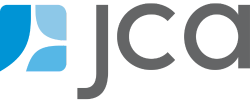Success Story | The Art of the Pivot: The Detroit Institute of Arts’ Move From RE7 to RE NXT

Brittany Ivey
Senior Consultant
When the road to implementing a new system introduces an unexpected hurdle, there is only one thing to do: pivot.
Implementing a new system is often a complex journey with a carefully planned schedule, and unexpected challenges can derail even the best-laid plans. But as the Detroit Institute of Arts demonstrates in the journey detailed below, a united team focused on the end goal can overcome any challenge.
The Detroit Institute of Arts (DIA) is a world-renowned art museum dedicated to inspiring visitors through art, creating experiences that help each visitor find personal meaning with the art, individually, and with each other. Named Best Art Museum of 2023 by USA Today readers, the DIA is one of the most visited museums in the world, welcoming nearly 700,000 visitors annually.
In 2024, the DIA embarked on a significant technology journey by migrating from its legacy Raiser’s Edge 7 database to the new cloud-based iteration, Raiser’s Edge NXT (RE NXT). This move was driven by two key objectives:
- Enhance User Experience: To improve the user experience for the fundraising team by providing seamless access to and updates within RE NXT from anywhere.
- Optimize IT Support: To get the application in the cloud and remove the technical support from the DIA IT staff that was required to support it on premises.
As part of the implementation process, the Development team took a proactive approach by first examining the potential impact of moving to RE NXT. Working closely with JCA, they developed an impact assessment report to identify potential challenges, such as implications for integrations and reporting.
Best Laid Plans
Despite this remarkable due diligence, the DIA encountered unforeseen challenges during the migration process. Two primary obstacles emerged: staff capacity and integrations.
Staff Capacity
With any system change, it is important to gain buy-in from key stakeholders from other functional areas: finance, marketing, IT, etc. The DIA intentionally involved relevant teams in the project, including them in status calls and decision-making processes. However, unexpected staff turnover led to a strain on project resourcing, creating a challenge in balancing project demands with everyday tasks.
Integrations
Additionally, the team uncovered another challenge as the project progressed: a shortcoming in the processing of revenue transactions, requiring a supplementary integrated tool to help process financial data. While the supplementary tool was easy to initiate and was a natural fit for their overall data ecosystem, the time needed to implement led to an impact on the overall project timeline.
Overcoming Obstacles
As these complications came to light, the DIA leveraged JCA’s expertise to pivot and come up with a revised project plan. The DIA leaned on JCA for project management support, developing an amended project schedule that allowed for a brief pause in implementation activities to allow the new integration tool to be put in place.
While it is not ideal to change a project schedule, the DIA carefully weighed the pros and cons of a brief delay to accommodate the integration tool implementation. After presenting their findings to the leadership team and gaining buy-in, the DIA project team paused the project to focus on implementing, testing, and deploying the new integration tool.
While the project was paused, JCA recommended a few key tactics to help the project team manage the limited staff resources:
- Involve the resources in relevant meetings only.
- Summarize the resource’s key takeaways and action items after every meeting.
- Document repetitive processes, such as login procedures, to distribute to staff.
- Delegate tasks to other team members whenever possible.
By working together to develop a revised plan, the DIA team was able to avoid a costly project shutdown. Instead, they were able to pause temporarily and redirect their efforts to overcome the unexpected challenges of upgrading their CRM system.
Despite the unforeseen obstacles, the team successfully completed the project under budget.
Embracing the Unexpected
Throughout the process, the DIA encountered unforeseen setbacks but chose to embrace the chaos and pivot their approach. Through resilience, collaboration, and the support of JCA, they not only navigated the rough waters but also learned valuable lessons about how to maintain momentum with overlapping priorities.
While it’s impossible to anticipate every potential risk on a project, strong project management and supportive partnerships can make it easier to facilitate expected changes.
The JCA Way
“Knowing we had the outstanding support of the JCA team to guide us through our project gave us the added confidence we needed to navigate the challenges we faced during our migration,” said Kristy Musick, Director of Development Operations at DIA. “This is the DIA’s third engagement with JCA since 2017. It is a valued and trusted partnership that we know will continue in the future.”
Project management is much more than controlling a schedule and budget. Great project managers know how to initiate and plan projects, as well as manage the team as they execute the plans, keep things under control, manage change, and bring the project to completion.
We’re dedicated to providing the best outcomes to our clients—and strong project management is at the heart of our approach.

